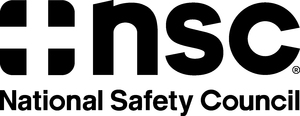National Safety Council Responds to Insurance Institute for Highway Safety and the Highway Loss Data Institute Research
ITASCA, Ill., Sept. 28 /PRNewswire-USNewswire/ -- The National Safety Council today issued this statement related to the latest distracted driving research from the Insurance Institute for Highway Safety and the Highway Loss Data Institute:
The Insurance Institute for Highway Safety (IIHS) and its Highway Loss Data Institute (HLDI) today reported research that texting bans in several states have not reduced crashes. This study follows previous research from IIHS and HLDI that reported laws banning handheld cell phone use, or hands-free laws, did not reduce crashes in selected states. The results from that research should not be surprising. Many research studies have shown no difference in risk between hands-free and handheld cell phone use. Hands-free cell phone use does not reduce the risks associated with cognitive distraction. Today's report also is not surprising. Texting laws that are not effectively enforced could not be expected to have much safety benefit.
Importantly, NSC disagrees with any suggestion that the narrow findings of today's report are definitive evidence that all cell phone or texting bans do not and will not ever work.
The study released today was performed in states at a time when consistent, uniform and effective enforcement was not in place. We know that recent enforcement projects in Syracuse, NY and Hartford, CT had measurable impact in reducing texting behind the wheel. We are hopeful the increased attention to the issue will move more state and local law enforcement agencies to develop best practices to enforce these laws.
Today's IIHS report is only one study, and like many studies, has relevant limitations. The validity of comparisons made between states relies on the assumption that texting bans are the only difference between the states. This assumption cannot be confirmed and is unlikely to be true. Although the texting bans included in the study did not decrease crash frequency, we do not know the reasons for this. IIHS and HLDI seem to suggest that texting laws might even be responsible for an increase in crashes in some states. That suggestion is speculative because there is no evidence that texting laws caused the increases.
Important issues of public policy require review of a significant body of evidence from multiple studies with multiple research methods. We do not believe it is appropriate to make broad generalizations or judgments about effective injury prevention strategies based on one or a few narrow studies.
In January 2009, after careful consideration and a thorough review of the evidence, NSC called for states to enact bans on all cell phone use while driving. When the NSC adopted its policy, it did so based on evidence from more than 50 studies that showed the significant risk of cell phone use and texting while driving. NSC did not act with a broad policy based on one, two or even ten research studies.
Since that time, we have learned even more about the issue. IIHS and the National Safety Council have both reported that the combination of risk and exposure of cell phone use contributes to about 25 percent of crashes. No other form of distraction contributes to nearly that many crashes. NHTSA reports driver distractions led to nearly 5,400 deaths last year, while acknowledging the incomplete nature of police reporting could make the actual number of fatalities greater than reported.
NSC called for total bans on cell phone use for two main reasons. First, the risk of cell phone use while driving is significant. Second, effective enforcement of traffic safety laws is a proven, effective strategy to save lives. The same combination of strong laws coupled with visible enforcement can reduce distracted driving just as it has been effective in increasing safety belt use and reducing drunk driving. The known risk of cell phone use while driving and the corresponding fatalities and injuries are so significant that all possible solutions must be explored.
We look forward to the day when total cell phone bans are enacted and effectively enforced for a long enough period that research can be performed to measure their impact. Until that day arrives, statements that broadly proclaim "cell phone bans don't work" are opinions lacking sufficient research.
The National Safety Council (www.nsc.org) saves lives by preventing injuries and deaths at work, in homes and communities, and on the roads through leadership, research, education and advocacy.
SOURCE National Safety Council
WANT YOUR COMPANY'S NEWS FEATURED ON PRNEWSWIRE.COM?
Newsrooms &
Influencers
Digital Media
Outlets
Journalists
Opted In




Share this article